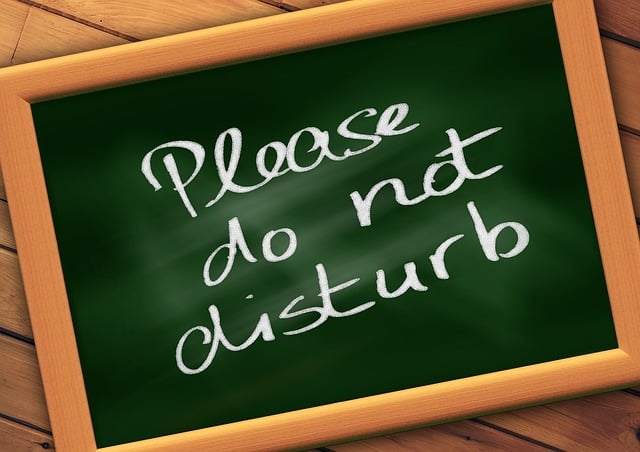[Image by Gerd Altmann of Pixabay]
We often wish we could put up a sign saying “Please do not disturb” and all would be right. As a public speaker, that sounds good but it simply doesn’t happen! Not only does our audience become distracted but this can affect the speaker as well. Before I share several seven effective ways of managing human distractions, it’s important to first revisit our purpose as a speaker in any situation. Simply put, as speakers we’re there for the audience and nothing else. Here are some options for you to consider:
- As part of practicing, put in some possible distractions that you can anticipate so you aren’t surprised when they occur.
- Build a contingency plan so that you can implement it as needed. For example, you can develop two or three prepared comments so you don’t have to think of them at the time.
- As a speaker, stay composed, calm, and avoid over-reacting.
- Human distractions come in all forms. For example, minor, large, major. For a minor distraction (e.g., an attendee entering late), keep going with your presentation and do not stop to acknowledge it. For a large distraction (e.g. the sound of a siren) you may wish to stop briefly so as not to compete and then pick up by repeating your last point. For a major distraction (e.g. waitstaff dropping a tray of dishes) you may decide to take a brief break.
- Humor works well during distractions such as saying “This looks like a good time to take a break.” or “That’s our cue to pause here.”
- Proxemics can be effective. By that I mean change your location. You may want to be closer to the person(s) who is chatting or on the phone. You could also say “That’s our reminder to check that our phones are off.”
- The audience takes their cue by observing your behavior. Do your best to avoid being mean spirited and calling negative attention to the individual. Remember your purpose is to stay calm and collected at all times. That will assist you in maintaining your focus and being a resourceful leader for your listeners.
If you have comments or concerns you wish to discuss with me, I’m eager to hear from you and happy to help you or your team, as warranted. All distractions are distracting; what matters most is how you choose to react to them.


